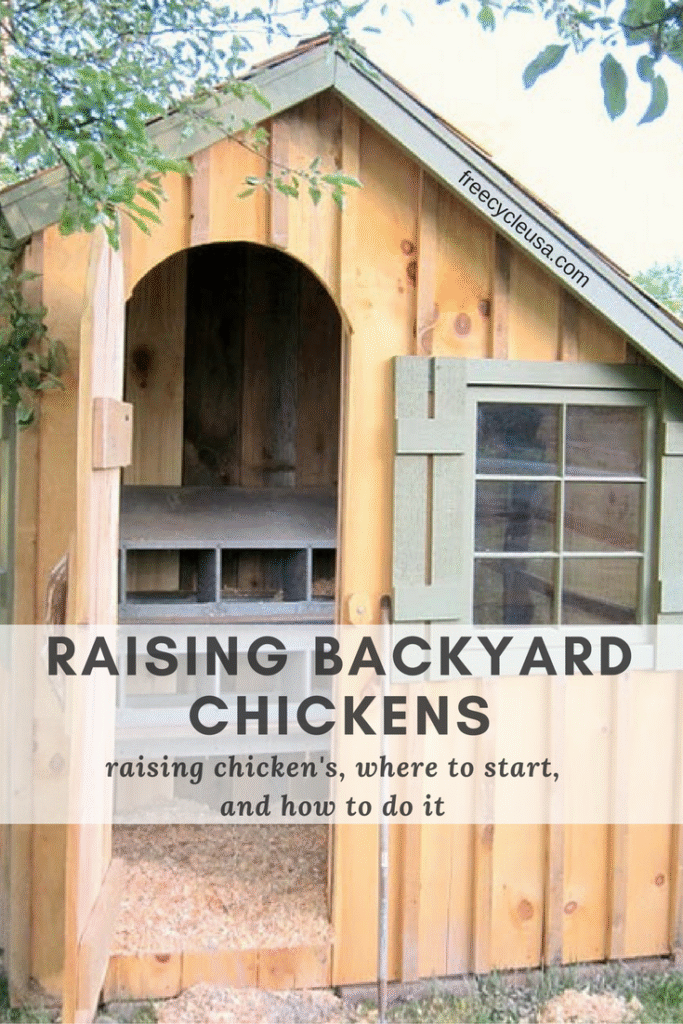The sound of a rooster crowing at dawn; delicious, farm-fresh eggs for breakfast; pest control; are just a few of the benefits of raising backyard chickens. In a reasonably small amount of space and with very few supplies, you can quickly start a backyard flock of your own.

Chickens are very easy to raise and care for. If you have space and foliage for them to free range, they will provide a lot of benefits and be very inexpensive to maintain. Their needs are few. My start in chicken farming was sudden, and I had no time to prepare or purchase supplies. When the chickens were delivered, I put them in a fenced dog pen. The only “shelter” was a large dog house. I set out a couple of bowls with water in them.
The following day when I went out with a flashlight to check on them, I didn't see a single chicken in the pen. I was horrified thinking that some predator had managed to come in during the night and wipe out the entire flock. That was lesson one in how easily chickens will adapt to their circumstances. All 25 had crowded into the dog house to keep warm during the night! I was lucky none had suffocated.
So, here is my quick, short list of the “must haves” for your flock.
Shelter
Your chickens will need some shelter. Some pretty unique chicken coop designs are available in books and on the internet. This can be as simple or as extravagant as you want. You can purchase a ready-made chicken coop or make one yourself. The shelter must protect them from the elements (rain, snow, sun, heat) and predators. When I first got my chickens, I was fortunate enough to have a little structure at the edge of the woods on my property. I disassembled it, moved the lumber to the fenced-in area, and rebuilt it. It's a simple, three-sectioned wooden shack with a metal roof. I installed some dowels for “roosts.” If you have a problem with predators in your area, you will need to ensure the coop is predator-proof so that you can lock your chickens up safely at night. Raccoons are clever and will scale a fence or dig under it with no trouble. So, simply having them fenced in isn't good enough. I lost a few hens to raccoons until I properly secured the coop.
Water
Your chickens need a constant supply of fresh water. There are several styles of waterers available commercially. In addition to a couple of galvanized poultry waterers, I also set out metal dog food pans with water in various locations. If you use bowls, make sure you buy heavy-duty ones with some weight; otherwise, your chickens will step into the bowls, and you'll be refilling them several times a day.
Chickens will eat just about anything. Let them free-range if you have space and plant life, and don't mind having chickens roaming around your property. It will reduce how much you have to feed them, and I firmly believe they will be healthier by foraging for fresh food in your yard. My chickens eat grass, leaves (they especially like poke salad), berries, grasshoppers, crickets, worms, and ticks – I've even seen them gobble up baby snakes and field mice. I supplement what they find on their own with kitchen scraps and a good laying feed.
These are the absolute “must-haves.” There are other supplies you may want. But these basics should let you get your flock off to a good start.
Looking for a complete setup for backyard chickens? We carry Chicken Egg Incubators, Small Backyard Chicken Coop Plans in many styles, Fertilized Chicken Eggs, Raising Backyard Chicken Books and DVDs, and Rooster Home & Garden Decor. Visit our store at ChickenHousesPlans.com